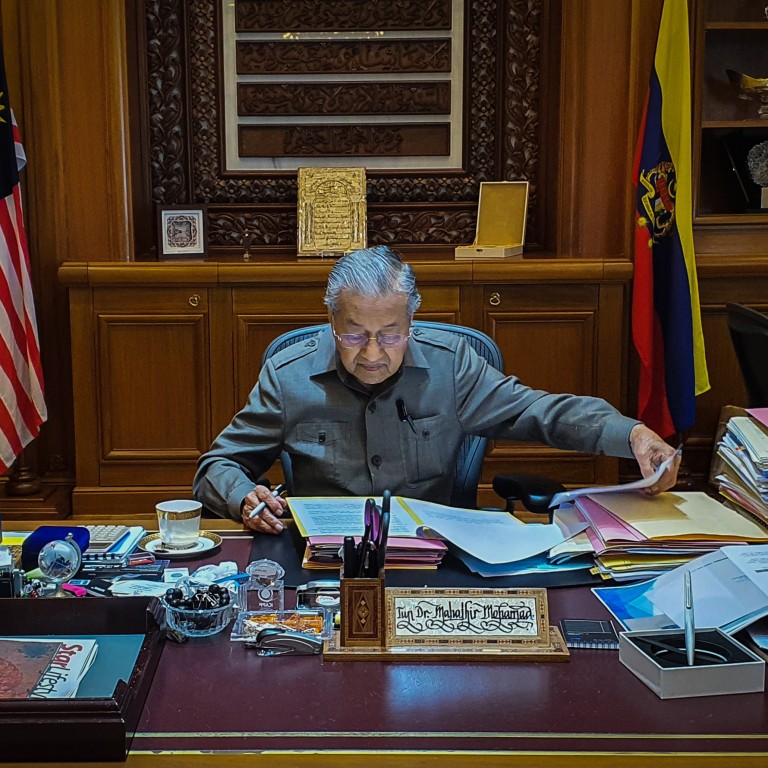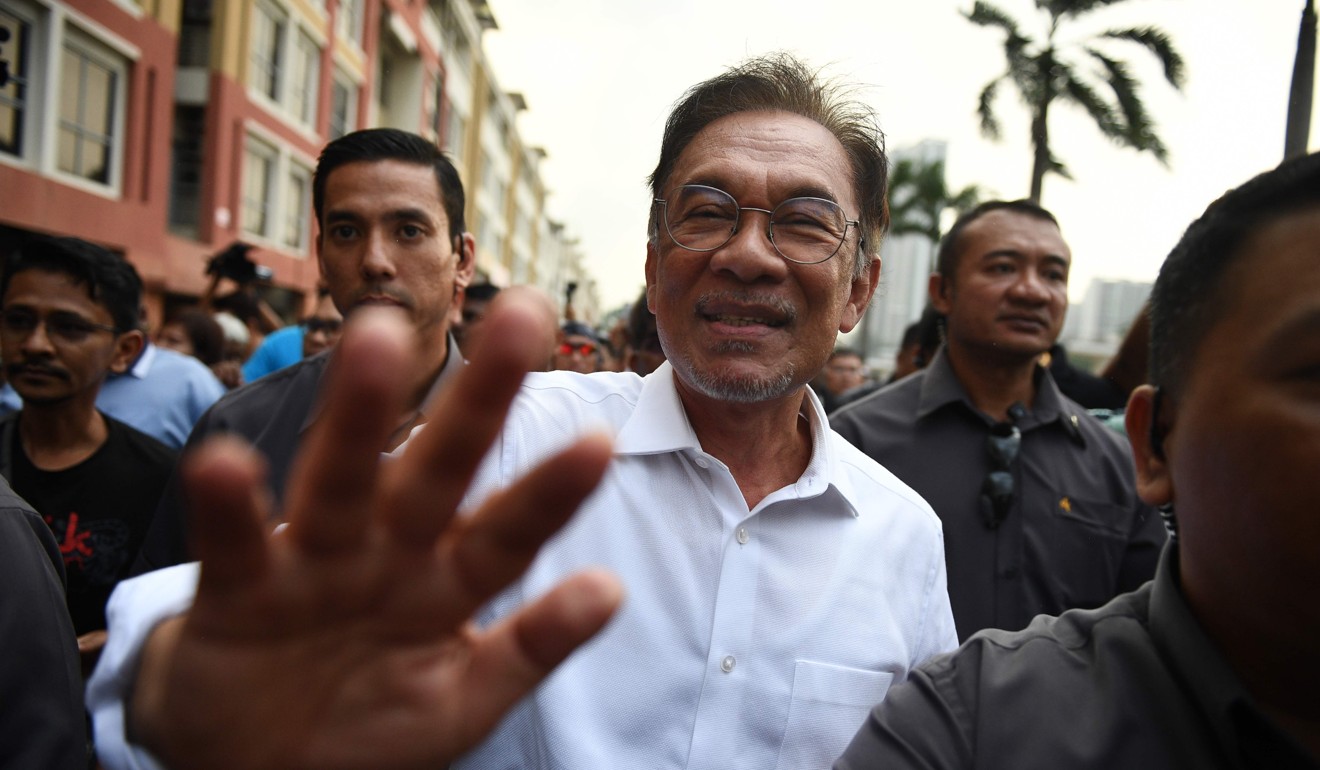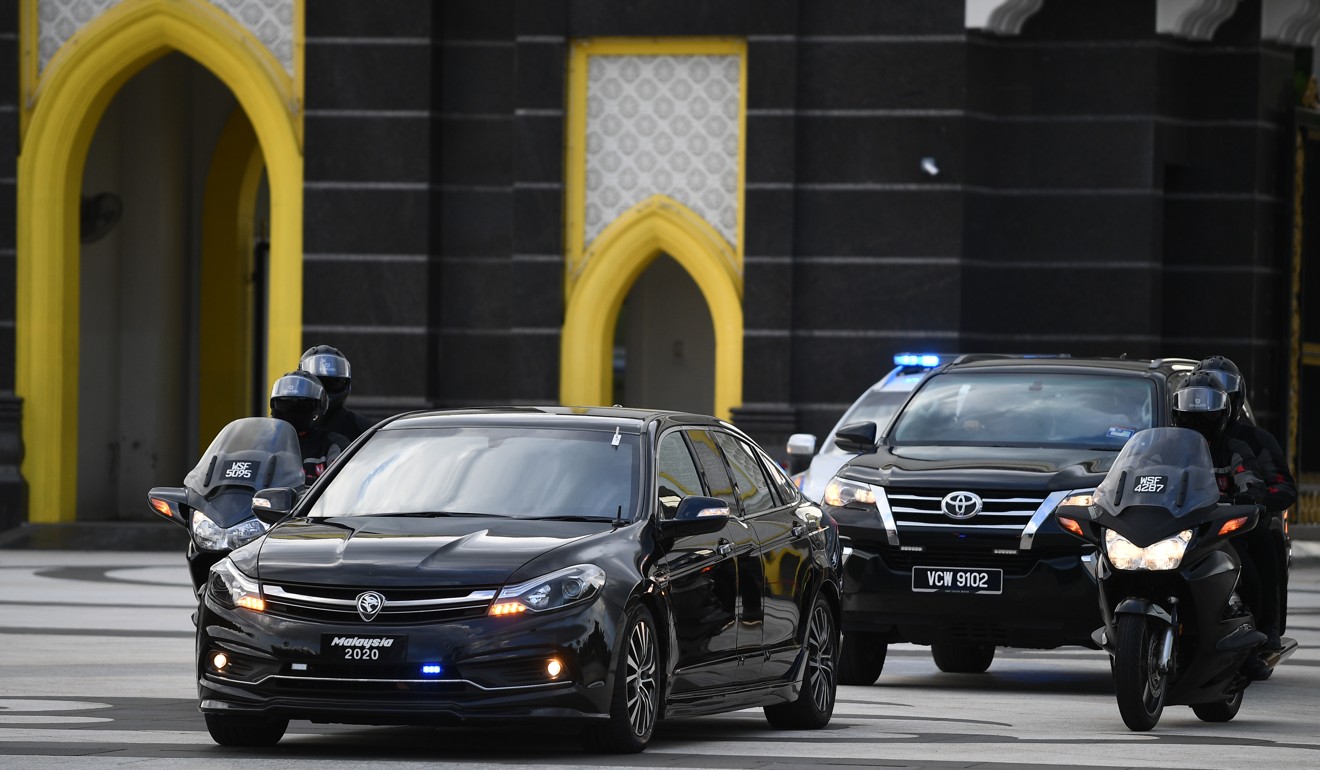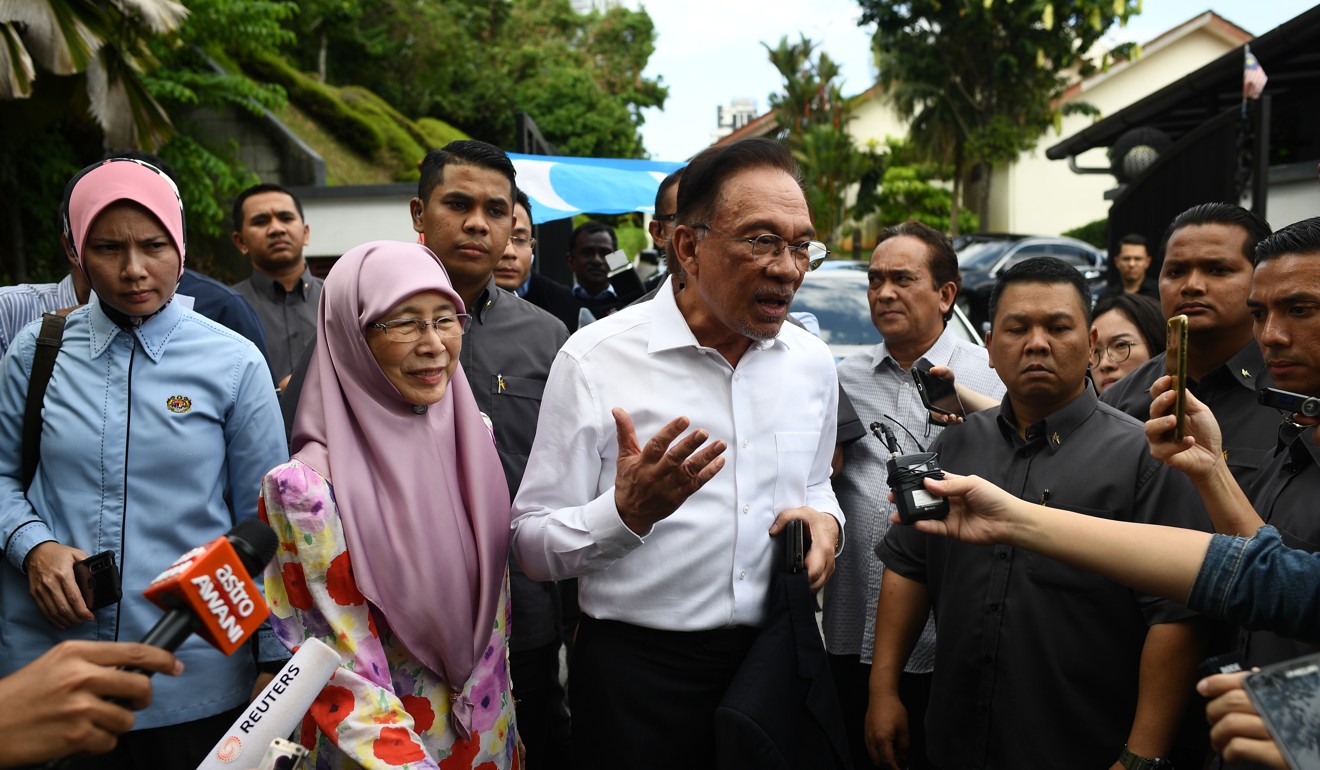
Malaysia’s next prime minister: Mahathir Mohamad plans to rule without Umno’s help. So does Anwar Ibrahim
- Time to step down has not arrived, says Mahathir as he paves the way for a return to the prime ministership he resigned from on Monday
- But his rival Anwar Ibrahim has also thrown his hat in the ring, and has the support of the former ruling coalition Pakatan Harapan
It said it had made the decision after Mahathir refused to attend the coalition’s presidential council meeting on Tuesday.
“The coalition remains committed to the aspirations and mandates of the people to lead the country towards a better future from all economic, political and social angles. We will not betray this trust,” said the coalition in a statement.
Political analysts said the latest developments increased the likelihoood of a snap election being called to solve the political impasse. “These are unprecedented developments in Malaysian politics, and things are likely to become more confusing yet,” said Tom Pepinsky, a professor of government at Cornell University who studies Southeast Asian politics.

In a press conference that took place just hours after a televised address in which Mahathir had outlined his own plans for a “non-partisan” government, Anwar said that all political activities should now stop while the country awaited the king’s decision, “which must be respected and obeyed by all parties and people in this country”.
The Democratic Action Party, a member of the Pakatan Harapan coalition, explained the decision by saying a non-partisan government led by Mahathir would not have been subject to the necessary parliamentary checks and balances.
Mahathir can return as Malaysia’s leader, without a deal with Anwar
“After Mahathir received support from all the parties to continue as prime minister, Mahathir wanted to form a ‘unity government of individuals’. This meant that only Mahathir would decide who would be cabinet ministers. DAP and other political parties would not be consulted in the process,” said the party. It added that as a result there was little chance the coalition’s pre-election manifesto promises would be fulfilled.
The intervention by the Pakatan Harapan came shortly after Mahathir had used his first national address since his resignation to reject claims he would be seeking a unity government with his former party, the right-wing United Malays National Organisation (Umno). Umno has been in opposition since the Pakatan Harapan dethroned it in elections two years ago for the first time in its 61-year rule.
Mahathir, who was appointed interim prime minister by the Malaysian monarch just hours after resigning, said in his televised broadcast that he had stepped down to put an end to rumours that “power and position” was his ultimate goal.

“I resigned because I see power and positions as not the be all and end all. It is a means to an end to achieve certain objectives for the good of the nation,” he said.
However, he said, it appeared he still had the support of parties from both sides of Malaysia’s political divide, and so the time for him to step down “had not yet arrived”.
Regarding his former party, he said he was “willing to accept Umno members who leave Umno and join other parties. But as for Umno joining a unity government as Umno, this I cannot accept”.
“I think, rightly or not, that politics and political parties must be put aside for now. I will attempt to establish a government that does not favour any one party, only giving precedence to national interests,” he said.
Mahathir, Anwar, the king: who are the key players in Malaysia’s political shake-up?
On Monday, Mahathir, 94, quit both as prime minister and as chairman of his party, the Malaysian United Indigenous Party (Bersatu). Bersatu itself exited the Pakatan Harapan coalition on Monday, just minutes before Mahathir announced his resignation as chairman.
This came after a weekend political coup by some of his followers who were eager to form a back-door government. The coup leaders had wanted to see Mahathir finish a full five-year term in office rather than fulfil a Pakatan Harapan pre-election promise that he would hand over power midway to Anwar.
Since Mahathir’s resignation various parties have scrambled to prove to the king they can command parliamentary majorities of the required 112 seats or more.
Umno has claimed to have the support of 130 MPs (it has 39 of its own), but it too ruled out a unity government with Mahathir despite an earlier pledge of support, saying this “would not be fair to the people”.

Umno has pushed for fresh polls, although under Malaysian law only the prime minister can recommend the king dissolve parliament – a request the king can deny.
Umno said its earlier support for Mahathir had been contingent on him leaving the Democratic Action Party, which is popular with the wealthy ethnic Chinese minority, out of any government coalition.
Mahathir is believed to have resigned from his party because he did not want to work with Umno, citing the party’s corruption. Some members of his party had pushed him to collaborate with Umno to form a new government.
The tumult saw the nation’s king stepping in to interview all 221 parliamentarians – excluding Mahathir, who he had met earlier – for the first time in history.
Pepinsky, the Cornell professor, said a “non-partisan cabinet” remained a possibility despite Pakatan Harapan’s reservations. Lawmakers from the alliance, the professor said, could join Mahathir’s cabinet in an “individual capacity” to allow them to deny they are joining as members of Pakatan Harapan.
“This might be better from the perspective of some Pakatan Harapan member parties that want to shore up their positions before new elections,” Pepinsky said.
The professor said his guess was that fresh elections “are more likely” than the alternative scenario of Mahathir agreeing to lead an alliance that includes Umno and other non-Pakatan Harapan groups such as the Islamist PAS party and parties from the semi-autonomous states of East Malaysian states of Sabah and Sarawak.
Battles within Pakatan Harapan began soon after its victory in the May 9, 2018, poll. The key point of contention was when Anwar of the People’s Justice Party would take over from Mahathir.
Meanwhile, Mahathir appears to be operating government as if it is business as usual. On Thursday he is to launch an economic stimulus package that experts had widely expected would be delayed in light of the crisis.

